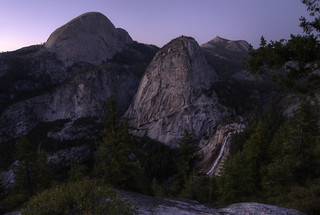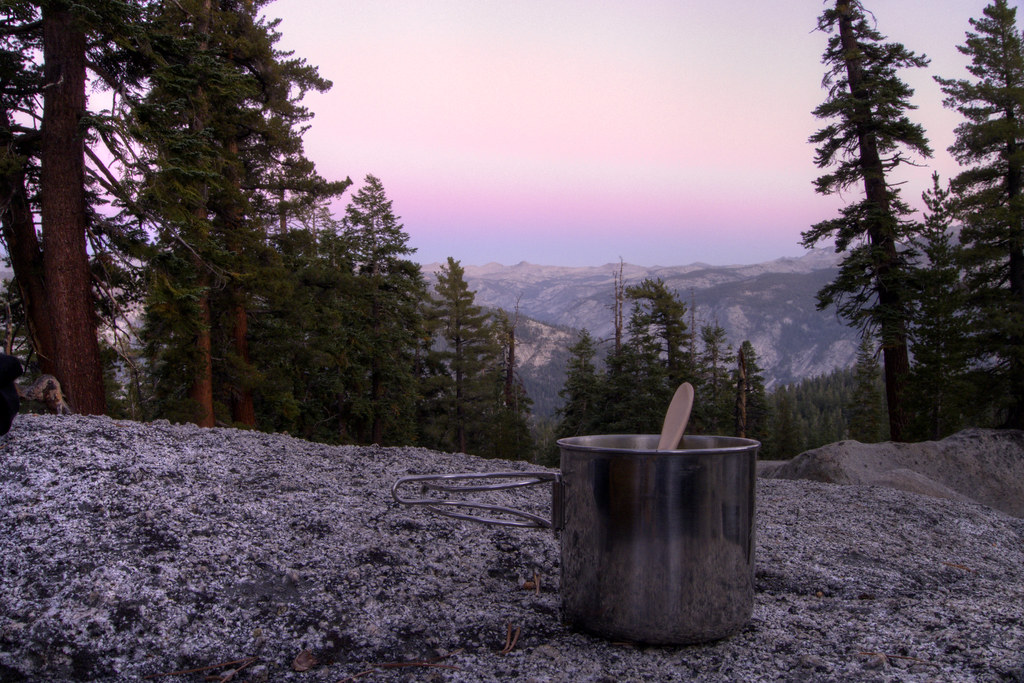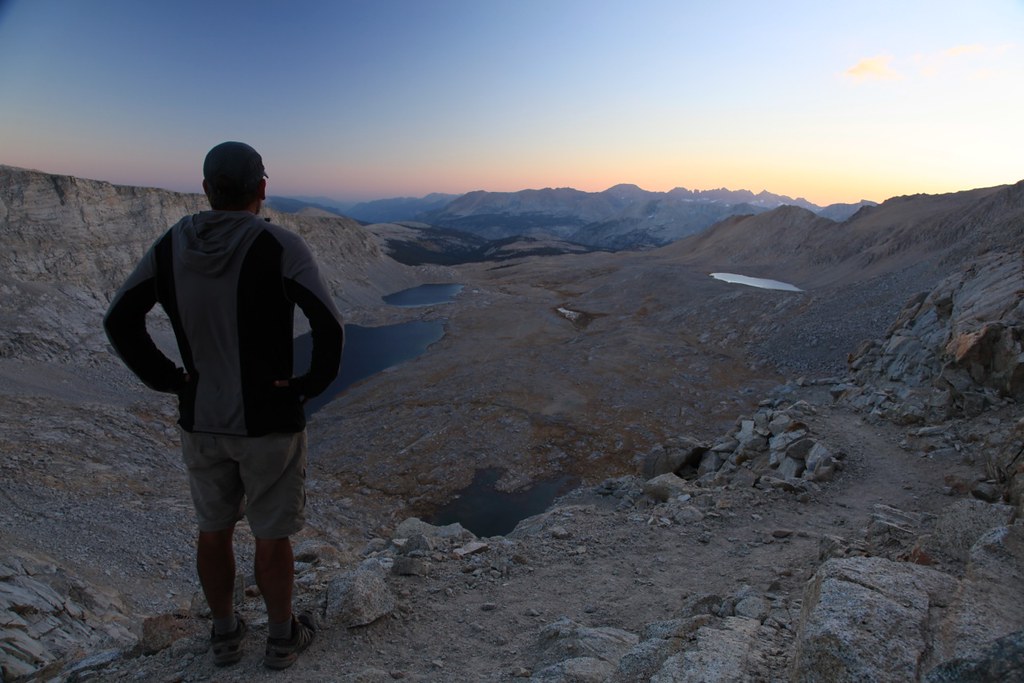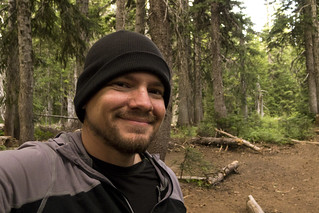Incommunicado
“What are you running from?” a co-worker once asked me.
I didn't immediately know how to answer his question. I had finally convinced myself that quitting my job to hike the Appalachian Trail in June 2011 was the right decision, but was I running from something?
"I'm not running from anything,” I said. “Continuing to work here is me running. Staying in this town is me running. I've been running my whole life! Going on this trip is me finally stopping!"
"No, I mean, like, are you running from the law or IRS or something?”
“Oh,” I said and smiled.
“You just said you're going to spend the next six months hiking through two-thousand miles of wilderness. Why do you want to do that?"
"Because when I'm hiking," I said "I never feel like I'm wasting my life."
The trip didn’t seem that crazy to me, although there was a time when I would have agreed it was crazy, and honestly, all about running from something. I daydreamed about it whenever things weren’t going well. I never dismissed the difficulty, but I found peace in the thought of hiking a single trail for six months. It was my escape, even if only in my mind.
Until I click Publish, few people know about my issues with anxiety. I've had it my whole life. It's the kind that comes from nothing, that doesn’t need a spark to light or fuel to burn. Sometimes it’s a debilitating inferno. Sometimes it’s just in the background like a pilot light, but it’s always there, burning in my chest.
When I finally started backpacking, I discovered that after five or six days alone on a trail, that anxious feeling, which always sat in my chest like a lump, just vanished. Actually, more than vanished. That lump, which felt so dense that light couldn’t escape its gravity, burst outward like a supernova. I never felt more alive or aware of my surroundings.
My whole life I tried to cure my anxiety by feeding it little bits of happiness or meaning: better jobs, different relationships, old religion, new religion, no religion, or a just different philosophy. Nothing really worked for me. Solo backpacking taught me that I didn’t need to add something; I just had to release what was already in there. I didn’t stress about anything because I no longer felt like I needed anything.
This feeling only lasted on the trail, though. The anxiety didn’t die;
it just went home early and waited for my return. Initially, I’d feel good to
be back home. I always developed a new appreciation for the comforts of home
after a week in the woods, but eventually I’d more or less return to my normal
self.
In some ways it got worse. When you carry something with you every
day, like a wallet or wristwatch, you eventually forget it’s there. Our brains are great
at blocking out persistent sensations. But stop wearing that watch for a few
days then put it on again and you can't help but notice its weight. Similarly, I couldn’t just ignore that pilot light anxiety anymore. I felt
it burning constantly. Backpacking became my anti-anxiety medication, so I made
it my life.
So here I am, four years later, still administering my
drug in the mountains of Spain. Or at least trying to.
Just a few days after the altercation on the beach, I stopped in a park for lunch. I lit my alcohol stove, set a pot of water to boil, and put on headphones. I unfastened a hiking pole from my bike and set it next to me, just in case.
When I heard voices nearby, I immediately shoved my headphones into my pocket and gripped the hiking pole. I sat still and alert waiting for my assailants to show themselves.
Two chatty elderly women strolled by.
Since I started backpacking, I have wandered alone through forests home to grizzlies and mountain lions. I’ve encountered black bears in my camp. I’ve inadvertently stepped over venomous snakes. I’ve been lost on remote snow-covered mountaintops. I’ve been so dehydrated that I couldn’t produce enough saliva to swallow food. I’ve hitched rides from hundreds of strangers. I’ve slept, unconscious and vulnerable, in countless public places. Yet, I don’t remember being on such high alert, as when two old women strolled by me in a park in Spain.
The paranoia lasted for a couple weeks after the mugging. It surprised me how intense it got. Faces didn’t seem friendly anymore. I constantly looked over my shoulder. I tensed up when I heard noises at night. Even in broad daylight, I recoiled when anyone came near me. I angered easily and was ready to fight any man who so much as looked at me. And I used to be so friendly.
A certain level of trust in humanity is required for this kind of life and for a time that was stolen from me too. The paranoia brought with it an extreme anxiety. I only camped outside if completely secluded. Even cars passing me on the highway stressed me out like they never had before. When roads didn't have shoulders, my heart raced every time I heard an engine behind me. It didn't help that someone stole my bike helmet when checking into a hotel one night. The anxiety sapped my energy so much that I often had to get off the bike to walk up hills.
In a hotel bar, I saw a case of knives for sale. They were organized by smallest on the top shelf, to the largest on the bottom. I knelt down to the bottom shelf and requested the biggest one they had. Well, second biggest, the Ali Baba sword seemed excessive. I felt a lot better with the knife at my side. I had a little bit of control back. Or at least the illusion of control, but that was enough.
Even as the paranoia faded, there was also the fact that 70 days passed since I had an actual face-to-face conversation with anyone. I realize now how important that is to me. Technology is great for keeping in touch with loved ones, but you get something from face-to-face contact that I didn't really understand until now. And my replacement phone never made it passed Spanish customs anyway, so I don't even have the ability to talk to friends whenever I need to anymore.
All of this left me feeling more alone than I ever have before. I started to question why I'm still doing this and considered leaving many times. The thought of returning to more normal life, however, made my anxiety worse, so I found myself thinking of the next adventures. That's when I thought of my co-workers question again.
"What are you running from?"
I went into the mountains to get that blissful feeling back. I found secluded places to setup camp and I just stayed there a few days until I ran out of food. Then I moved forward until I found another place to camp. If I couldn't find a secluded spot before dark, I got a hotel.
One morning, I got out of my tent and stood barefoot on sharp gravel for my morning restroom break. I looked up at the treeless mountains and dusty mesas in the morning sunlight. The ground was covered in jagged rock and tough desert plants of sage and brown. I took off my unneeded jacket and stepped into my shoes, so I could admire the view in comfort.
Bugs buzzed around my head annoying me. I focused on one of them. Bees. “Why can’t a moment ever just be perfect,” I thought.
I kept my eyes on one of the bees as it landed on a small flower with five white petals and a yellow center. It lingered for a moment then hovered to the next. The program running in its brain fascinated me.
I knelt down to wipe away the gravel from a small patch of earth and sat down. I watched the bee move from flower to flower as though bouncing in weak gravity rather than flying. As it floated around collecting pollen, I noticed the hundreds of white flowers all around me. I didn’t notice any of them yesterday. All of them were there because of a simple program running in the bee’s tiny brain that evolved into a codependent relationship with the flower. They depended on each other for survival.
I realized that the only thing imperfect about this moment was me. I began to feel much better, but that feeling I used to have in moments like those wasn't as powerful as it once was. Maybe I've just been doing this for too long. Maybe I've let moments like this become too normal.
When I first ventured far away from my home in the flatland of Indiana, I sped down the highways of the American West looking up in awe at that mountain scenery. I noticed that the locals on the road commuting to work stared forward, bored out of their minds, and I thought about how lucky they were without realizing it. I used to resent growing up in such a geologically boring area of the country, but I learned to be glad for it because it allowed me to appreciate the west properly, similar to a long winter’s effect on spring. Has spending too much time backpacking turned me into one of those unappreciative locals? Or is it something else,
I packed up, rode to the next town for supplies, and then moved to another spot deep into the woods on the base of a white-capped mountain. On my last morning there, I sat against a tree to read a book and sip coffee. I started to feel that old feeling again. I felt the anxiety began to vanish, but I felt like if I moved or got distracted by another thought I would lose it, like when you need everyone to shut up when you’re trying to remember a song that’s on the tip of your tongue.
I needed more time, so continued inching across Spain in this way for two more weeks.
On my final night of camping, a storm blew through. The wind kept me awake, so I stayed up to read. When I finally fell asleep, a gust of wind ripped my tent and it collapsed on top of me. I crawled out and tried to repair it in the rain. After spending so much time trying to hide quietly in the mountains, I stopped what I was doing and let out my frustration by yelling at the top of my lungs into the night sky. I was done with Spain. This wasn't working anymore. It's time to get moving again.
I've often wondered if I could ever give up a life of such long adventures, but in the course of the last few months, I've discovered that I need people in my life. I need adventure too, but I need to find a proper balance of the two.
I rode to the town of Malaga on the southern coast and booked a hostel. I've spent the last few days writing and actually having conversations again. I'm feeling much better now. I've stop stewing and made a new plan, a plan to wrap up this adventure for now. I'm heading to Seville, Spain next, then Lisbon, Portugal. From there I'll probably give the bike to the first homeless person I see, and then head to the airport. I'm not going home quite yet, though. There is still more I need to see before I do that...


com-s.jpg)
com-s.jpg)
com-s.jpg)
com-s.jpg)



